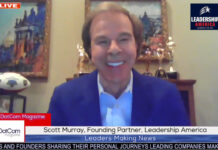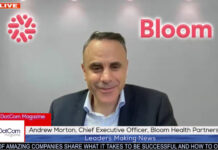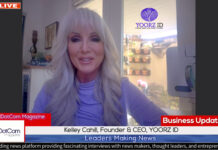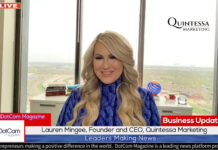A marketing campaign is a coordinated set of activities designed to promote a product, service, or brand with specific goals in mind. It is a strategic effort that combines various marketing channels and tactics to reach a target audience, convey a message, and ultimately drive a desired action, such as making a purchase or signing up for a service. In this comprehensive guide, we will explore the concept of a marketing campaign, its essential components, and the key factors that contribute to the success of a campaign.
1. Definition of a Marketing Campaign: A marketing campaign is a structured and organized marketing effort that aims to achieve specific objectives. These objectives can include increasing brand awareness, driving sales, launching a new product, or promoting an event. Marketing campaigns involve a series of interrelated activities, often spanning multiple marketing channels, and are typically executed within a defined timeframe.
2. Clear Objectives: Every successful marketing campaign begins with clear and well-defined objectives. These objectives serve as the foundation of the campaign, outlining what the campaign seeks to achieve. Objectives should be specific, measurable, achievable, relevant, and time-bound (SMART) to ensure that progress and success can be accurately assessed.
3. Target Audience Segmentation: Understanding the target audience is paramount in a marketing campaign. Effective segmentation allows marketers to identify distinct customer groups based on demographics, behaviors, interests, and other factors. Tailoring the campaign to these specific segments ensures that messaging resonates with the intended audience.
4. Creative and Messaging Strategy: A creative and messaging strategy is at the heart of any marketing campaign. It involves developing a compelling message and creative assets that convey the campaign’s key points and resonate with the target audience. The creative elements should align with the brand’s identity and the campaign’s objectives.
5. Multi-Channel Approach: Marketing campaigns often utilize a multi-channel approach, which means deploying strategies across various marketing channels. These can include digital channels like social media, email marketing, and search advertising, as well as traditional channels such as print media, radio, and television. A well-planned multi-channel approach ensures a broader reach.
6. Budget and Resource Allocation: Budget allocation is a critical aspect of a marketing campaign. Marketers must determine the financial resources required for campaign execution and allocate budgets to different aspects of the campaign, including creative development, media spend, and tracking and analytics tools.
7. Timing and Scheduling: Timing is crucial in a marketing campaign. Marketers need to decide when the campaign will be launched, how long it will run, and the timing of specific activities within the campaign. Timely execution is often essential for aligning the campaign with market trends and seasonal factors.
8. Metrics and Analytics: Effective measurement and analytics are key to evaluating the success of a marketing campaign. Marketers track key performance indicators (KPIs) related to campaign objectives, such as click-through rates, conversion rates, return on investment (ROI), and more. Analyzing data allows for data-driven decision-making and ongoing campaign optimization.
9. Continuous Monitoring and Optimization: A marketing campaign doesn’t end with its launch. Continuous monitoring and optimization are crucial for ensuring that the campaign is on track to meet its objectives. Marketers should track performance, identify areas for improvement, and make adjustments as needed to maximize results.
10. Post-Campaign Evaluation: After the campaign concludes, a thorough post-campaign evaluation should take place. This assessment involves a comprehensive review of the campaign’s performance, the achievement of objectives, and lessons learned. It helps inform future marketing campaigns and ensures that the organization benefits from valuable insights.
11. Message Consistency: Consistency in messaging is essential in a marketing campaign. The message conveyed in advertisements, content, and various marketing materials should align with the campaign’s objectives and the overall brand identity. This consistency ensures that customers receive a coherent and unified message.
12. Audience Engagement: A successful marketing campaign strives to engage the target audience effectively. Engagement can take many forms, including likes, shares, comments, and click-throughs. Engaged customers are more likely to convert and become brand advocates, contributing to the campaign’s success.
13. Creative Testing: Innovative and creative testing is a valuable practice in a marketing campaign. Marketers should experiment with different ad creatives, messaging variations, and visuals to determine what resonates most effectively with the audience. A/B testing and multivariate testing are common methods for optimizing creative elements.
14. Personalization and Segmentation: Personalization and segmentation strategies enhance the relevance of a marketing campaign. By tailoring messages and offers to individual customer preferences, marketers can increase the campaign’s effectiveness and drive higher conversion rates.
15. Adherence to Legal and Ethical Standards: Marketers must ensure that their campaigns adhere to legal and ethical standards. This includes compliance with advertising regulations, consumer protection laws, data privacy regulations, and industry-specific guidelines. Adherence to these standards protects the brand’s reputation and builds trust with customers.
16. Crisis Preparedness: Marketing campaigns should have crisis preparedness plans in place. Unexpected issues, negative public responses, or unforeseen challenges can arise during a campaign. A well-prepared response plan ensures that marketers can effectively manage and mitigate crises without jeopardizing the campaign’s objectives.
17. Community Building: Some campaigns aim to build a community of loyal customers and brand advocates. Strategies for fostering community engagement, such as online forums, social media groups, and loyalty programs, can be essential for long-term success beyond the campaign’s duration.
18. Cultural Sensitivity and Localization: For campaigns that target global or diverse audiences, cultural sensitivity and localization are critical. Understanding cultural nuances, language preferences, and regional differences helps ensure that the campaign’s messaging is relevant and respectful to diverse audiences.
19. Scalability and Expansion: A marketing campaign may be designed with scalability and expansion in mind. This means that strategies and tactics should accommodate growth and the potential for reaching new markets. Campaigns should be flexible enough to adapt to evolving business needs.
20. Return on Investment (ROI) Analysis: Evaluating the campaign’s ROI is a central aspect of post-campaign analysis. Marketers should assess the return on investment, comparing the campaign’s costs to the achieved outcomes. A positive ROI demonstrates the campaign’s success and can inform future marketing strategies.
A marketing campaign is a purposeful and structured effort that involves clear objectives, target audience segmentation, creative and messaging strategy, a multi-channel approach, budget allocation, timing, metrics, and analytics, continuous monitoring, and post-campaign evaluation. A well-executed campaign can be a powerful tool for achieving marketing goals and building brand awareness, ultimately contributing to the organization’s success.
In conclusion, a successful marketing campaign comprises a range of elements and factors, including message consistency, audience engagement, creative testing, personalization, legal and ethical compliance, crisis preparedness, community building, cultural sensitivity, scalability, and ROI analysis. These components, when well-executed, contribute to the campaign’s overall success, helping organizations achieve their marketing objectives and build a stronger brand presence.
















